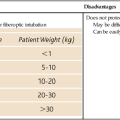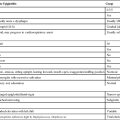Licensure, credentialing, and privileging
How health care organizations credential and privilege providers
• Conflicting information between the information provided on the application and the information received in the verification process.
• Unexplained gaps in time. Organizations may determine what time period is considered an acceptable time gap between transitions (e.g., a time gap between training programs or when relocating). Unexplained or extended time gaps are considered a red flag and require additional information.
• Frequent moves from location to location or practice to practice. This situation not only can make competency evaluation for privileging difficult, but may also suggest problems in other areas, such as poor interpersonal skills, health problems, issues with a state licensing board or agency, or excessive malpractice claims.
• Negative references or reference requests that are not returned. References can be a powerful source of information, but because applicants have a tendency to select individuals who will give a positive review, a negative response is particularly important.
• Unanswered questions on the application. Although an omission may be a simple error, it can also signal an effort by the applicant to hide something.
• A large number of liability suits. Recently, the number of lawsuits associated with a provider has become linked to his or her ability to communicate with patients as well as competency.







